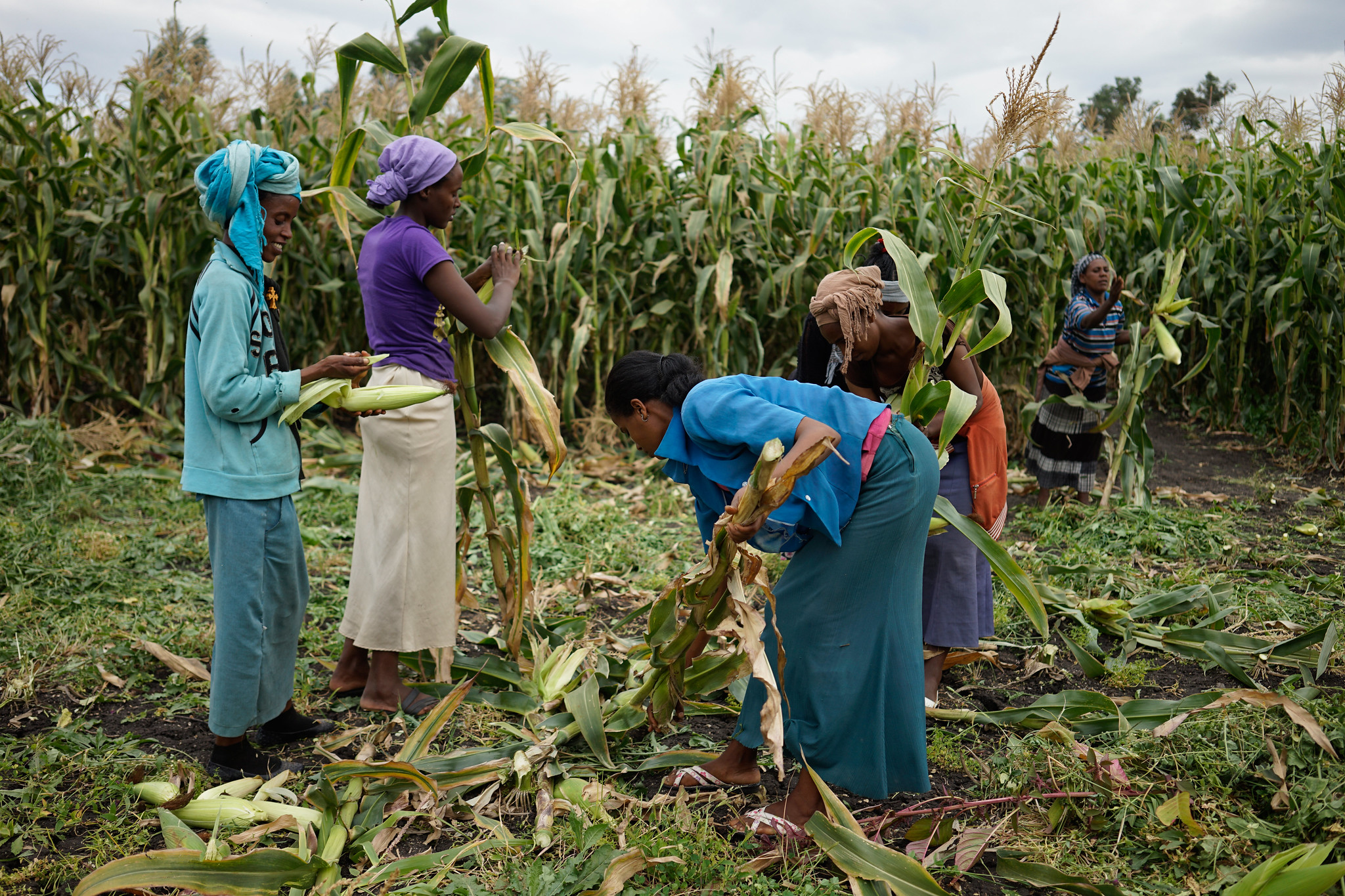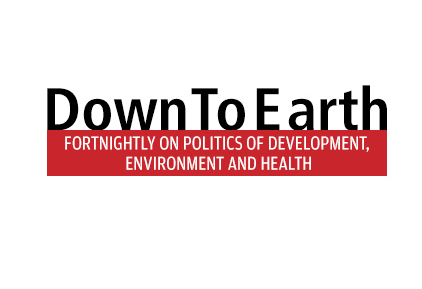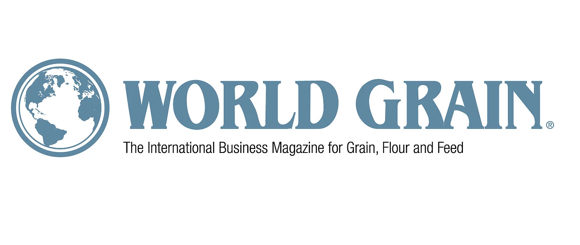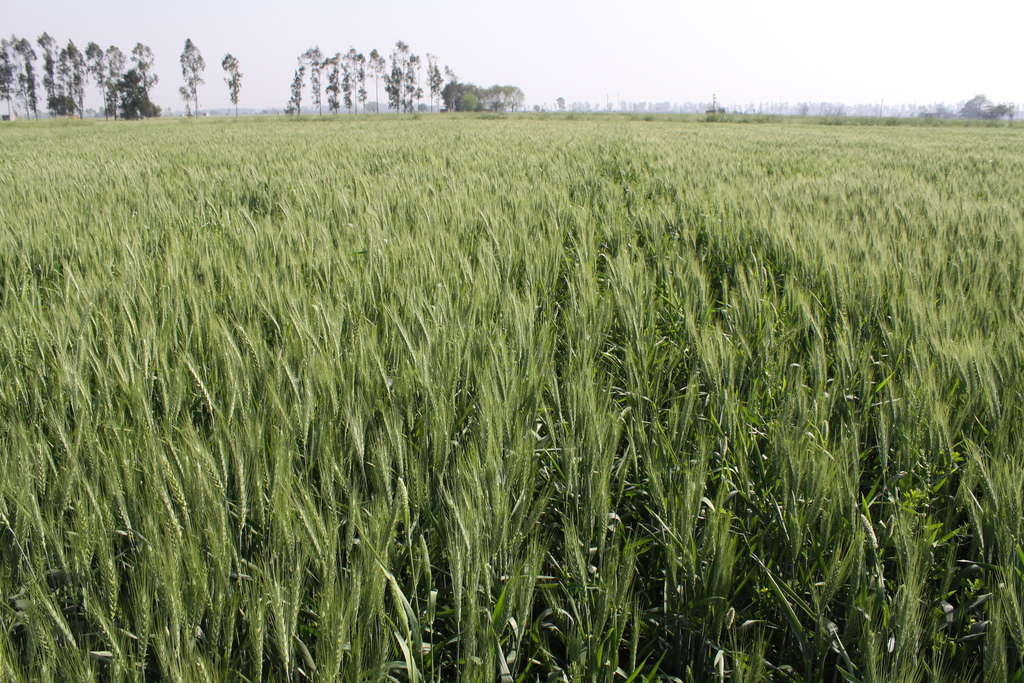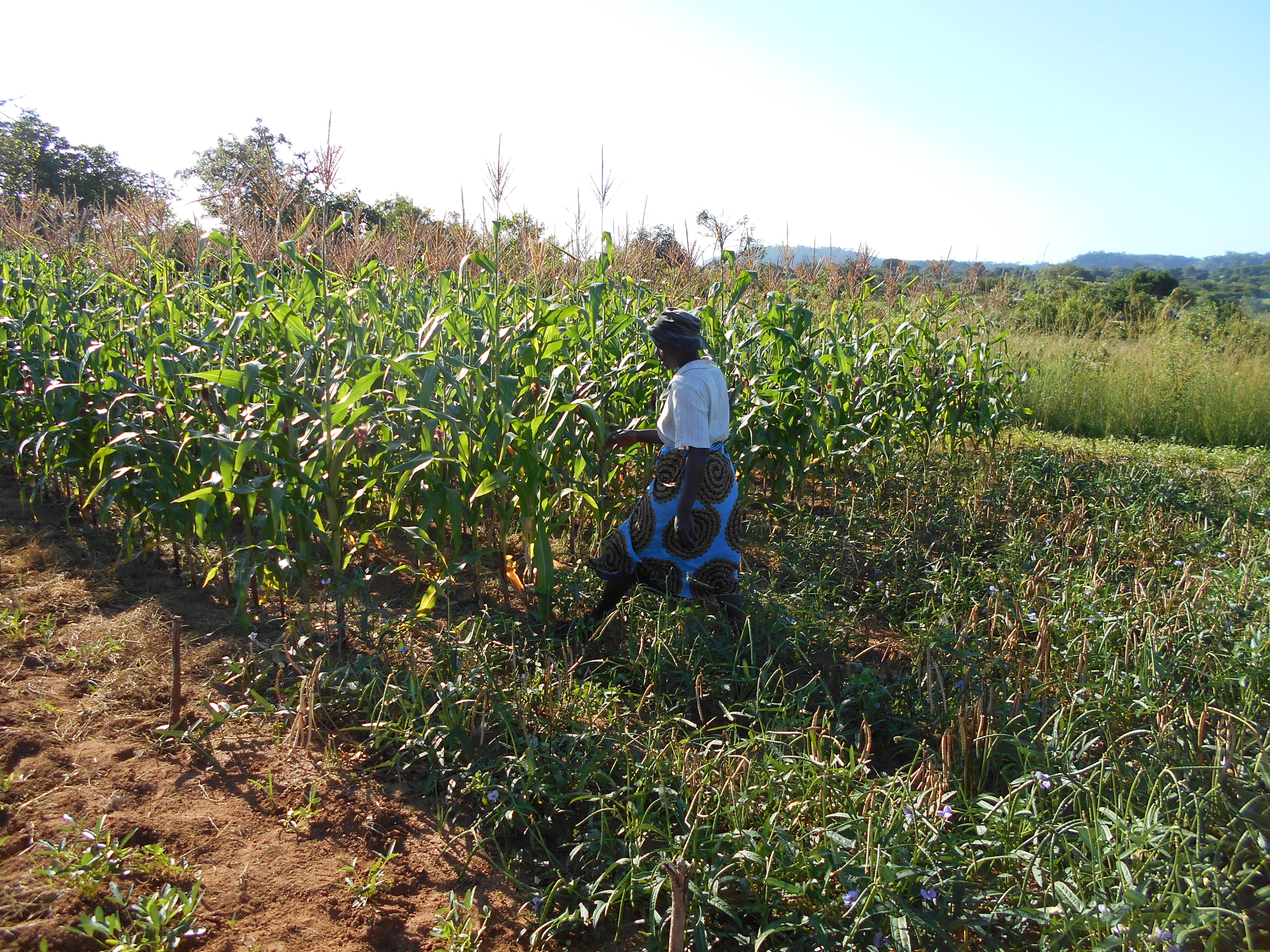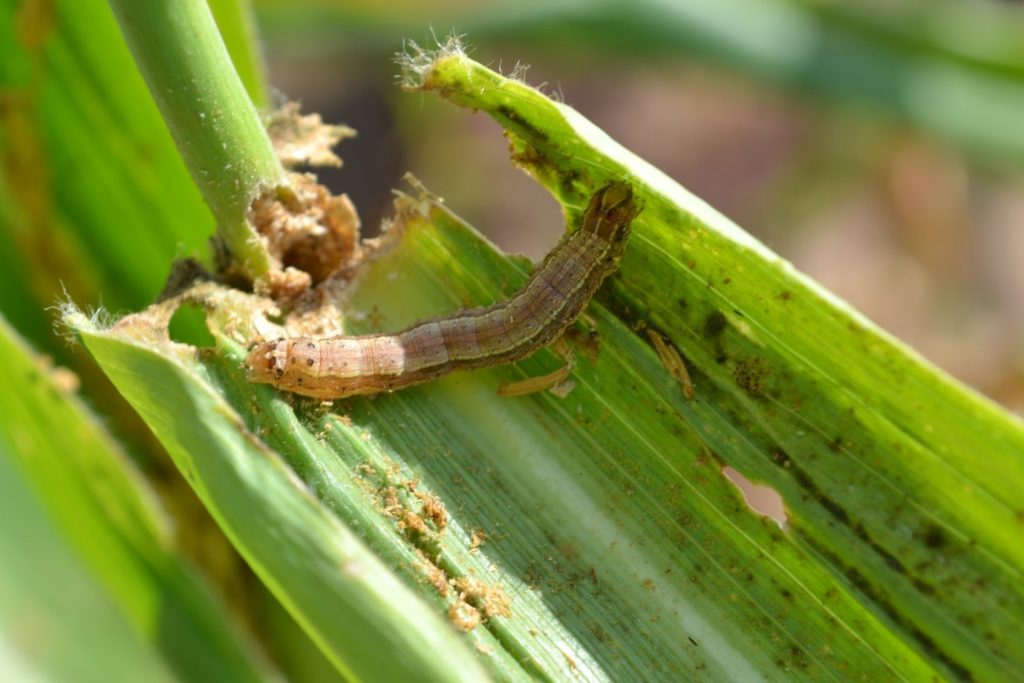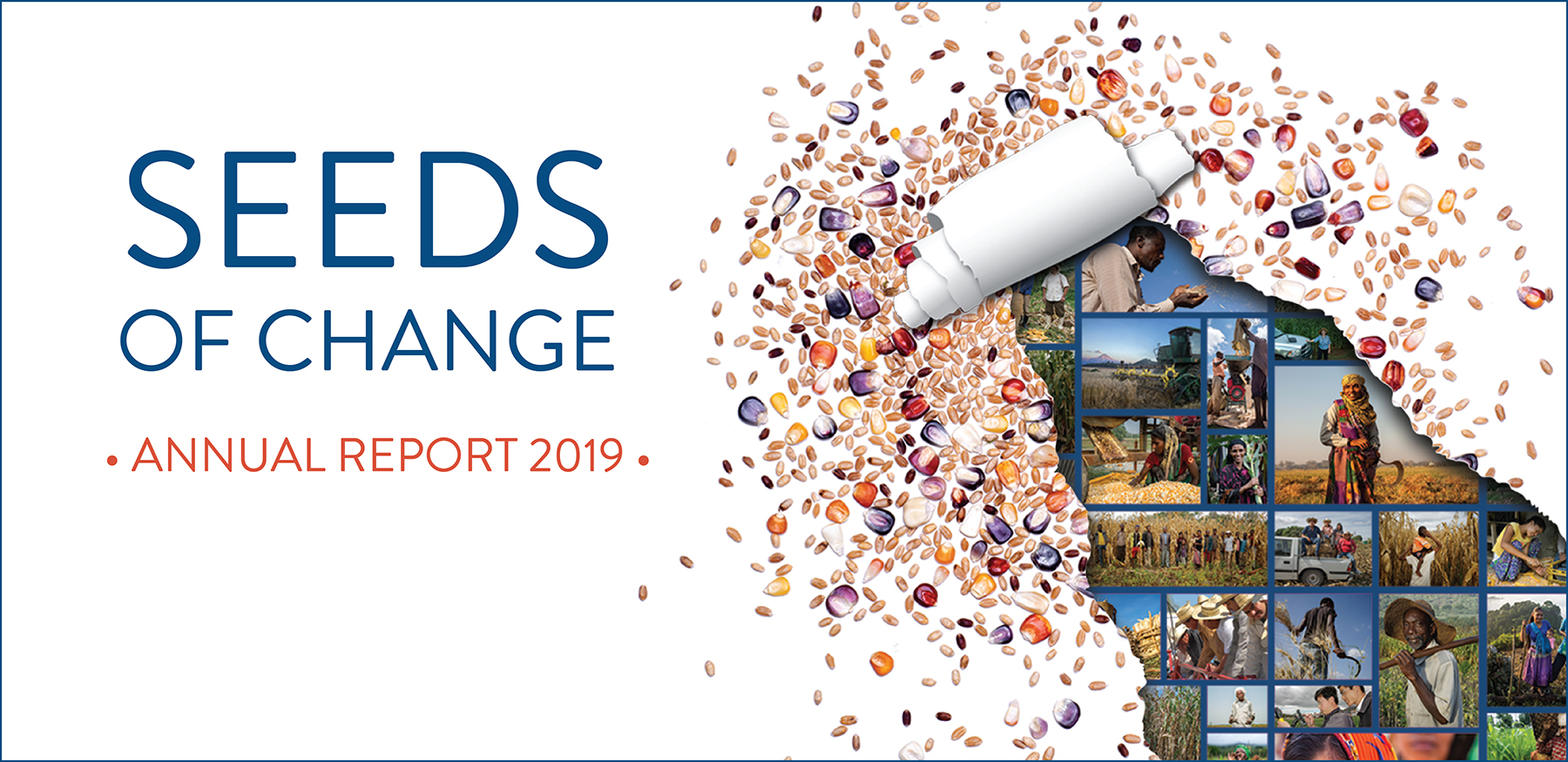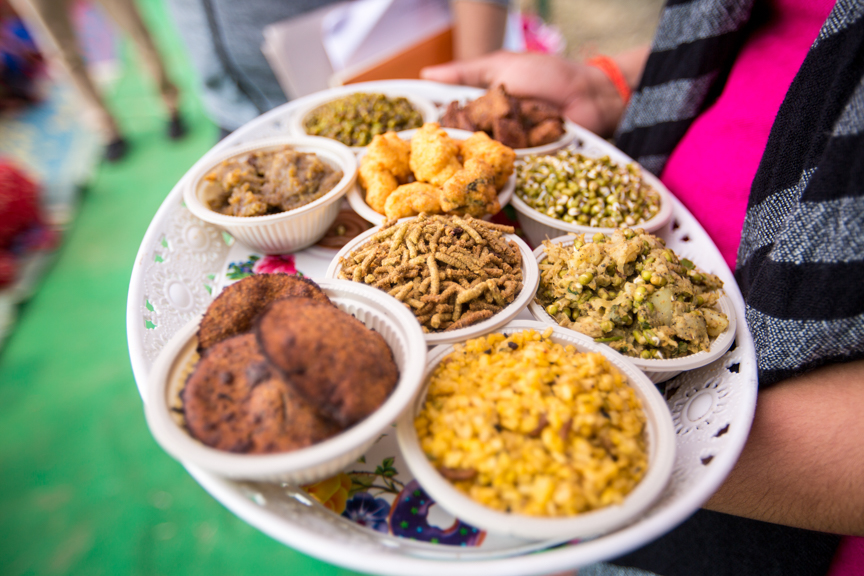Nutrition, health and food security
As staple foods, maize and wheat provide vital nutrients and health benefits, making up close to two-thirds of the world’s food energy intake, and contributing 55 to 70 percent of the total calories in the diets of people living in developing countries, according to the U.N. Food and Agriculture Organization. CIMMYT scientists tackle food insecurity through improved nutrient-rich, high-yielding varieties and sustainable agronomic practices, ensuring that those who most depend on agriculture have enough to make a living and feed their families. The U.N. projects that the global population will increase to more than 9 billion people by 2050, which means that the successes and failures of wheat and maize farmers will continue to have a crucial impact on food security. Findings by the Intergovernmental Panel on Climate Change, which show heat waves could occur more often and mean global surface temperatures could rise by up to 5 degrees Celsius throughout the century, indicate that increasing yield alone will be insufficient to meet future demand for food.
Achieving widespread food and nutritional security for the world’s poorest people is more complex than simply boosting production. Biofortification of maize and wheat helps increase the vitamins and minerals in these key crops. CIMMYT helps families grow and eat provitamin A enriched maize, zinc-enhanced maize and wheat varieties, and quality protein maize. CIMMYT also works on improving food health and safety, by reducing mycotoxin levels in the global food chain. Mycotoxins are produced by fungi that colonize in food crops, and cause health problems or even death in humans or animals. Worldwide, CIMMYT helps train food processors to reduce fungal contamination in maize, and promotes affordable technologies and training to detect mycotoxins and reduce exposure.
Combating COVID-19 with better nutrition: What an Iowa organization is doing in Central America
 Nutrition, health and food security
Nutrition, health and food security
Source: Des Moines Register (17 Jul 2020)
Self-Help International is fighting malnutrition with biofortified crops in Nicaragua.
Targeted fertilizer recommendations improve maize productivity in Ethiopia
 Nutrition, health and food security
Nutrition, health and food security
Researchers in Ethiopia show that well-targeted fertilizer recommendations improve fertilizer usage and productivity of maize production.
Back to basics: COVID-19 labour crunch brings direct seeding of paddy in focus
 Innovations
Innovations
Source: Down to Earth (15 Jul 2020)
While an estimated 10 percent of India’s 44 million ha of rice is cultivated through direct seeding, the COVID-19 pandemic could lead to an increase in this practice.
New analysis to help in creating yellow rust resistant wheat
 Innovations
Innovations
Source: World Grain (15 Jul 2020)
CIMMYT scientists perform large genome-wide association study in India, Kenya and Mexico to understand yellow rust resistance in wheat.
Conservation agriculture for sustainable intensification in Eastern India
 Environmental health and biodiversity
Environmental health and biodiversity
A new policy brief provides a roadmap for accelerating the adoption of conservation agriculture in Eastern India.
Gauging the impact of COVID-19 lockdown on farming communities and agribusinesses in Nepal
 Nutrition, health and food security
Nutrition, health and food security
A survey conducted by CIMMYT researchers collected insights from over 200 key value-chain market actors.
When mothers learn from babies
 Climate adaptation and mitigation
Climate adaptation and mitigation
The “learning by doing” concept helps farmers in Zimbabwe successfully adopt sustainable agriculture principles.
New fall armyworm portal launched to help facilitate greater research collaboration
 Nutrition, health and food security
Nutrition, health and food security
Portal will encourage rapid, iterative experimentation and global teamwork to address spread and impact of the invasive crop pest.
Annual Report 2019 launched
 Innovations
Innovations
CIMMYT’s work may begin with seeds, but our innovations support farmers at all stages of the value chain.
International program ushers in a new era of maize farming in Pakistan
 Innovations
Innovations
Agricultural Innovation Program (AIP) comes to a close but its impact lives on.
Turn annuals into perennials. Does the farmer want that?
 Innovations
Innovations
Source: Trouw (28 Jun 2020)
Opinions differ on if world food production could be improved if annual crops, such as maize, rice, wheat and vegetables, could be turned into perennials.
Improved heat-resistant wheat varieties are identified
 Climate adaptation and mitigation
Climate adaptation and mitigation
Source: Phys.org (16 Jun 2020)
CIMMYT and University of Cordoba studied 54 kinds of wheat to analyze response to high temperatures.
Small but mighty
 Capacity development
Capacity development
The introduction of mung bean has transformed rice-wheat food systems in Nepal and has been one of the major successes of the Agronomy and Seed Scaling project.
Private sector and government urged to invest in maize
 Nutrition, health and food security
Nutrition, health and food security
Source: Reforma (16 Jun 2020)
CIMMYT calls on companies and government to support sustainable and resilient food systems to prevent the COVID-19 health crisis from becoming a food crisis in Mexico.
Investing in climate change-resistant crops
 Climate adaptation and mitigation
Climate adaptation and mitigation
Source: Ingredients Network (15 Jun 2020)
CIMMYT is part of a global effort to develop stress-resistant crops and partners with companies and farmers for the sustainable production of maize and wheat.

